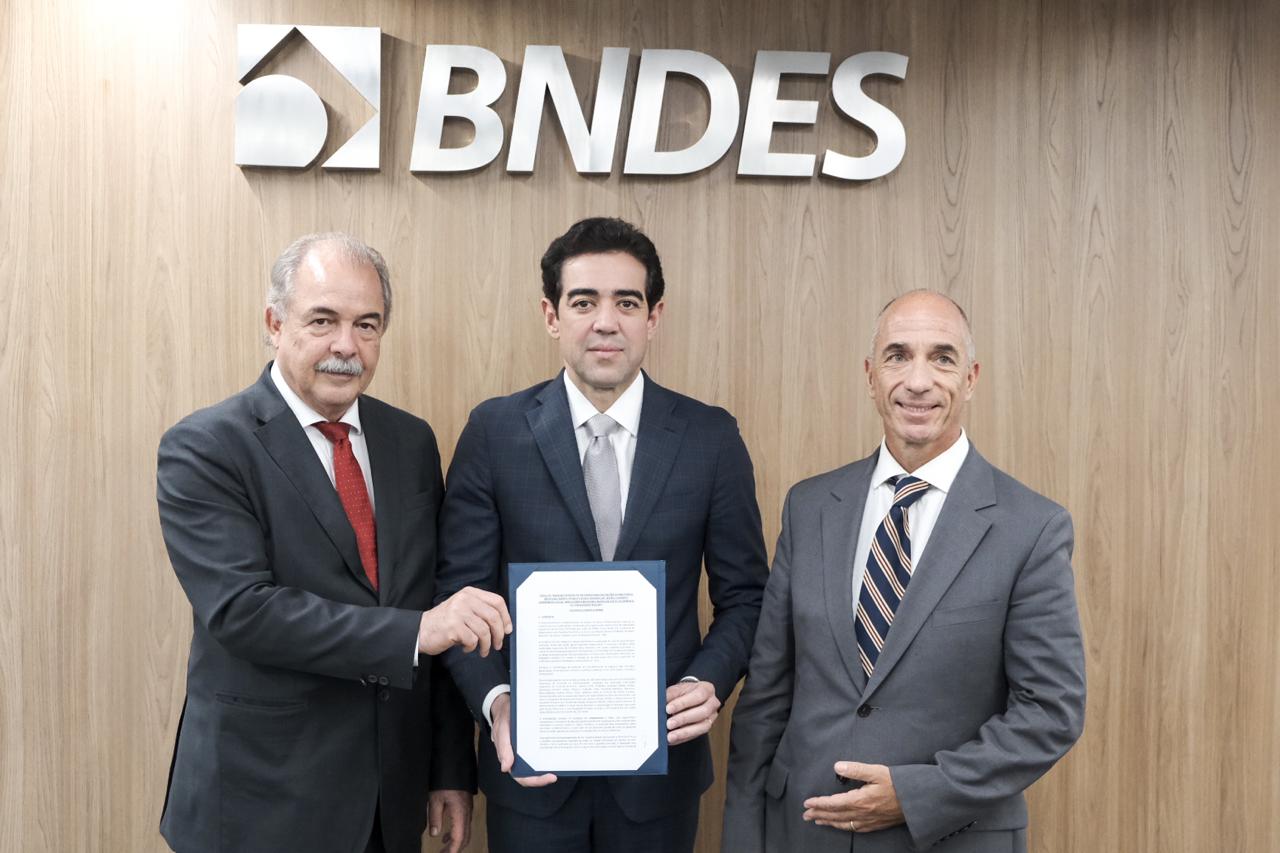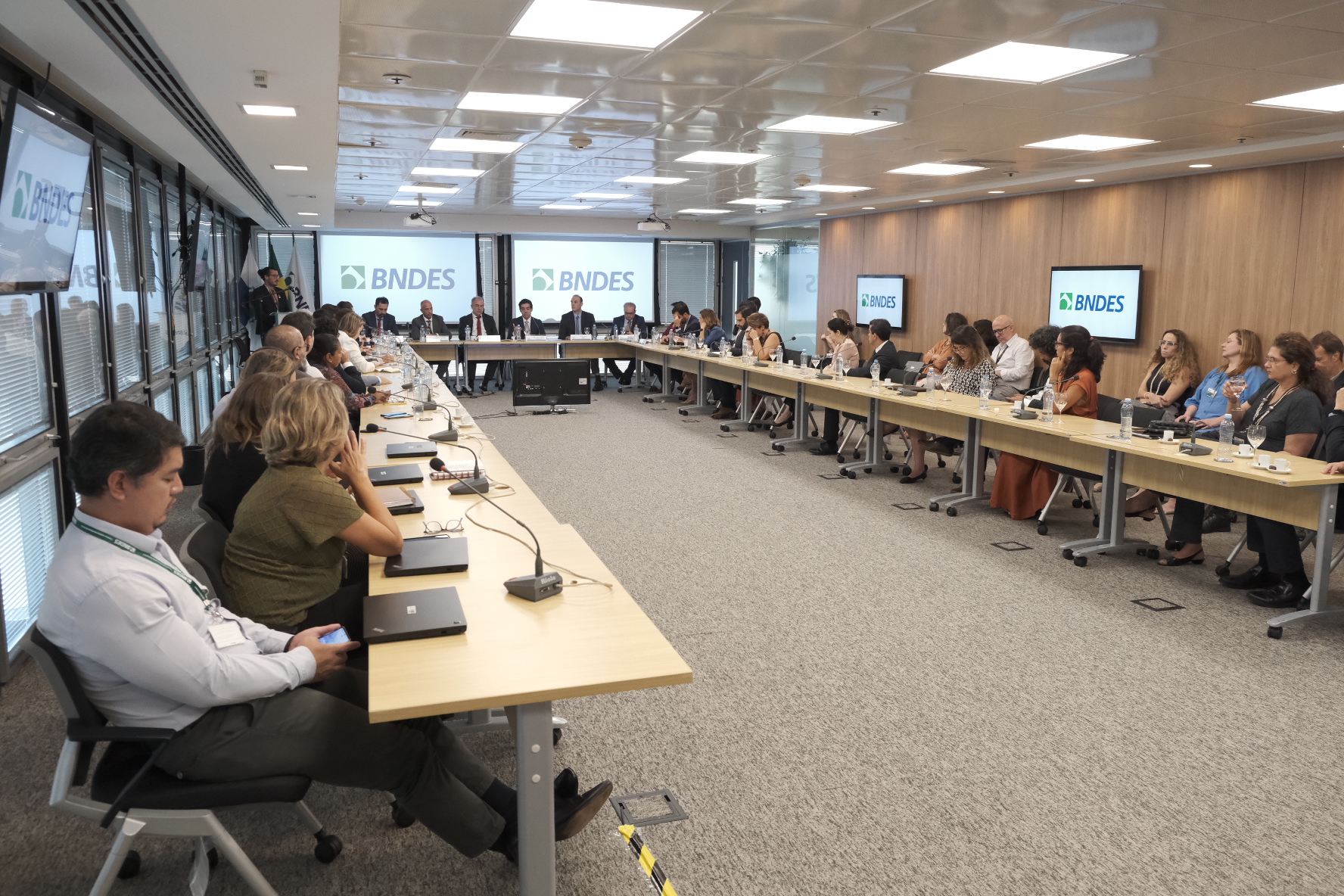ClimateScanner Receives USD 1 Million Funding From BNDES
The Bank signed a financial and technical cooperation agreement with both UNDP and TCU on May 6th
Por Secom

The President of the Brazilian Federal Court of Accounts (TCU), Minister Bruno Dantas, attended the signing ceremony on May 6 for a cooperation agreement with the Brazilian Development Bank (BNDES). Under this agreement, BNDES will provide USD 1 million for the implementation phase of ClimateScanner. The meeting, held at the Bank's headquarters in Rio de Janeiro, was also attended by representatives of the United Nations Development Program (UNDP), which will receive and manage the funds allocated for the project. ClimateScanner is an initiative of the International Organization of Supreme Audit Institutions (INTOSAI).
BNDES is a Brazilian federal public bank linked to the Ministry of Development, Industry, Commerce, and Services, serving as the primary instrument of the Federal Government for long-term financing and investment across various sectors of the Brazilian economy
The partnership work plan was signed by the Bank's President, Aloizio Mercadante, the UNDP's Resident Representative in Brazil, Claudio Providas, and the Chair of INTOSAI and President of TCU, Minister Bruno Dantas. In addition to providing financial support for the completion of the platform, the document outlines the involvement of BNDES technicians specialized in climate resilience financing.
The tool for monitoring public policies on climate change, developed by INTOSAI under the chairmanship of TCU, is currently in the implementation phase across approximately 70 out of the 195 Supreme Audit Institutions (SAIs). New adhesions are still expected.
Minister Bruno Dantas emphasized the agreement's paramount importance for the environmental governance of INTOSAI's 195 member countries and its significant impact on combating climate change, an urgent global concern.

"The partnership between BNDES and UNDP is crucial for our success in one of the primary initiatives of the Brazilian mandate within INTOSAI. With this collaboration, we will now have the necessary resources to train SAIs in utilizing this environmental and climate governance tool," stated Dantas.
According to Mercadante, the agreement aligns with BNDES' strategy to combat climate change and finance an equitable ecological transition, with a focus on decarbonization. "This project embodies BNDES' core values: prioritizing the shift towards a green economy, facilitating the energy transition, promoting transparency, and enabling social oversight," he remarked. "Moreover, through our involvement, our experts will have the opportunity to exchange insights with SAIs regarding our operations and explore potential enhancements and challenges within the public financing framework."
ClimateScanner
ClimateScanner is a tool designed to enable SAIs to rapidly assess government actions taken to combat climate change. Crafted throughout 2023 by a collaborative executive team comprising 17 SAIs worldwide, its methodology is structured around three core dimensions: governance, climate finance, and public policies. Furthermore, it operates at both national and international levels, offering a comprehensive approach to climate-related evaluation.
The tool’s language enables the collection and dissemination of data in a standardized way for all countries. It enables the evaluation of various topics, including monitoring mechanisms, risk management, strategies for mitigating the effects of climate change, and climate finance, allowing comparison between nations.

Developed with a simple language, user-friendly navigation, and visual resources, the platform was designed to reach a wider audience, including civil society and the international community. The aim is for citizens to be able to monitor the results of ClimateScanner's assessments and their impact on their own countries.
The tool in Brazil will offer the government, UNDP, and society a comprehensive diagnosis of the country's main strengths and challenges regarding the climate crisis. This will help in directing efforts and resources more effectively. Additionally, it will assist in identifying specific areas where control bodies should conduct more targeted and in-depth audits.
Presented last November in Dubai during COP28, the project garnered support from various international institutions during its development phase, including the UNDP, the United Nations Department of Economic and Social Affairs (UNDESA), the World Bank, and the Inter-American Development Bank (IDB). The initiative's outcomes will be showcased during COP29, scheduled for November in Azerbaijan.